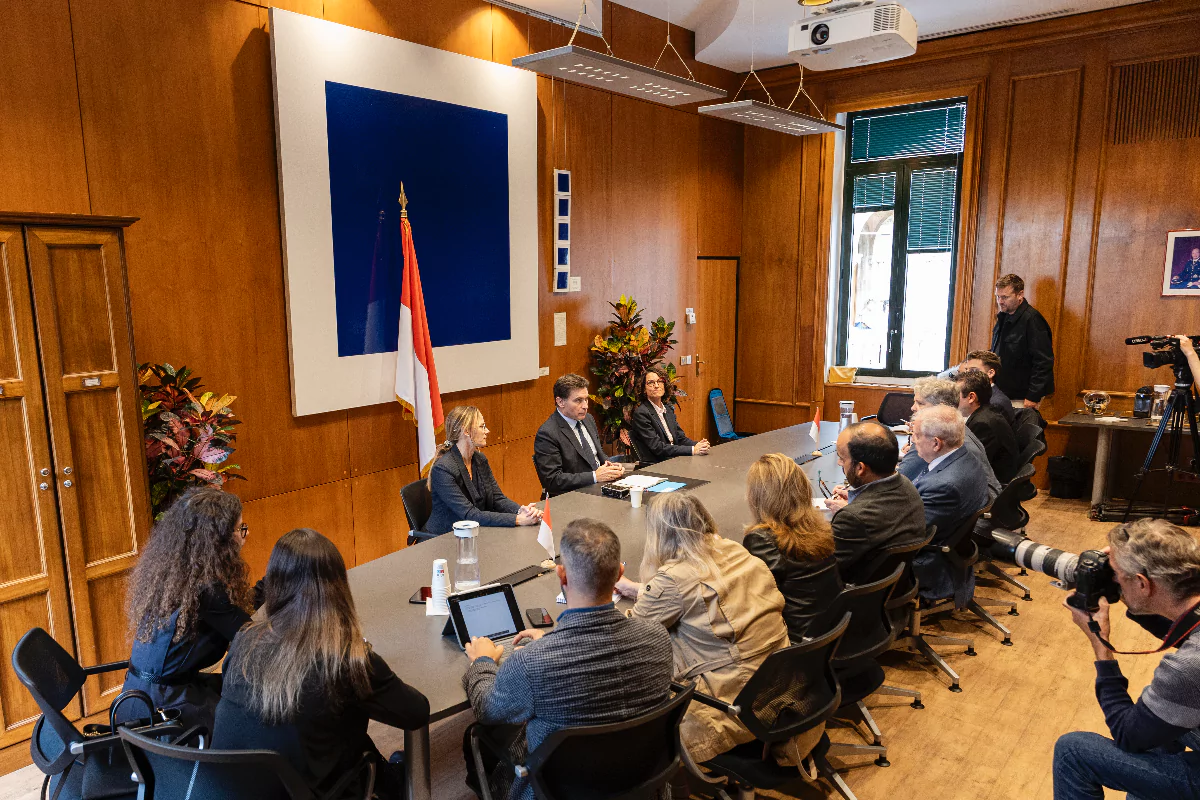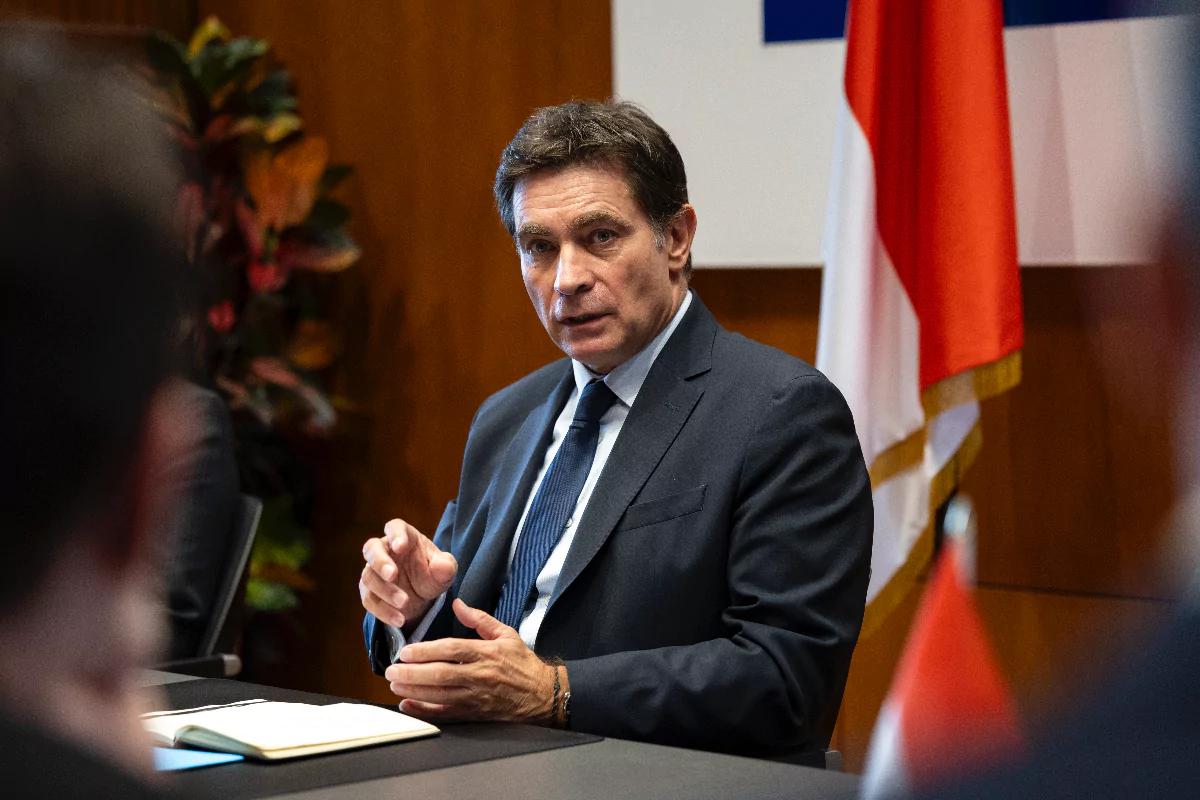When Samuel Vuelta Simon arrived in Monaco as Secretary of State for Justice just over a year ago, he made a shocking discovery: the Principality’s Wikipedia page didn’t even mention its justice system.
“I thought, this isn’t possible,” he told the press, including Monaco Life, during a meeting on October 2nd. “How can people not know about a justice system that works well, works quickly, and is independent?”
That moment shaped his mission to modernise Monaco’s court while helping understand how justice actually works.
“Justice must be accountable to the community that employs it,” Vuelta Simon said. “It’s not some shadow arm of the state. It needs to explain what it does for people every day.”
It’s an ambitious goal for a small operation. Monaco’s entire justice administration runs on 30 people, with about 10 senior officials managing everything from courtrooms to international treaties.
Addressing independence questions
One of the first things Vuelta Simon confronted were the claims that Monaco’s judiciary lacks independence. Critics site article 88 of the Constitution, which states judicial power “belongs to the Prince”. But he argues that they are reading selectively.
“The following articles make clear that power is fully delegated to the courts,” he explained. “In a year here, I’ve never given a single instruction in an individual case.”
His role is administrative, which means ensuring judges can work independently, not directing their decisions. The only area where he can intervene is speed. “I can ask where they are on a case, whether they can move faster. People deserve prompt justice. But the substance of cases isn’t my call.”

Recruiting Monegasque judges
For years, young Monegasques have shown little to no interest in becoming judges. Last year, Monaco cancelled a magistrate recruitment competition when candidates withdrew.
This year brought a breakthrough though – 11 people enrolled in preparation courses, five registered for the magistracy exam, and three applied exclusively for judge positions. “This has never happened,” Vuelta explained.
His aim is for at least half of Monaco’s magistrates to be national. Currently, most are French.
The Monegasque Institute for Judicial Training, in an attempt to make justice more accessible, offered 700 training places this year, up from 340 three years ago. New programmes now serve government workers and students, not just legal professionals.
Monaco has also launched its first journal in June and began a book series on Monegasque law. These initiative address practical gaps like bailiff’s fees that hadn’t been updated in 25 years, while notaries operate under 1886 regulations.
“When we forget to update these texts, our justice system eventually grinds to a halt,” Vuelta Simon said.
International standing
Next year, Monaco will chair the Council of Europe’s Committee of Ministers from May to November 2026, an opportunity that won’t recur for over two decades.
“It’s a chance to show what we do here and prove we’re at the level of major states,” Vuelta Simon said. Monaco is also negotiating judicial cooperation treaties with China, Panama, and Brazil.
“We’re a small team achieving important things quickly with limited resources,” he said, wrapping up the conference. Whether updating Wikipedia, training judges, or exiting grey lists, his main objective remains consistent, and that is bringing Monaco’s justice system into clearer view.
Stay updated with Monaco Life: sign up for our free newsletter, catch our podcast on Spotify, and follow us across Facebook, Instagram, LinkedIn, and Tik Tok.
Main photo of Vuelta Simon credit: Manuel Vitali, Direction de la Communication
